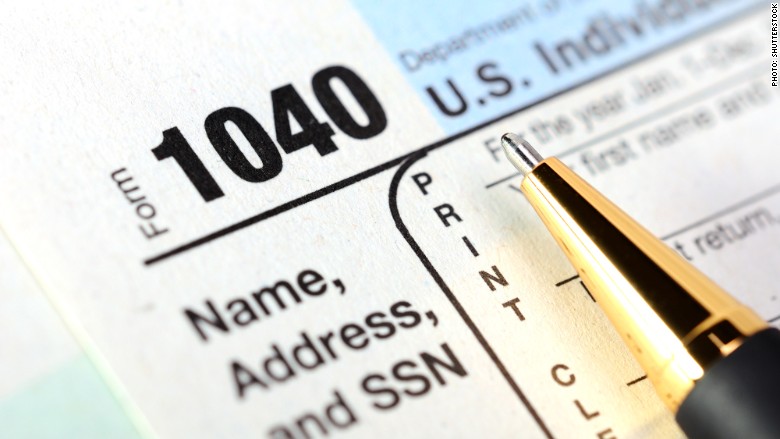
Every tax season, millions of undocumented immigrants file their taxes with the federal government -- even though they could easily get away without doing so.
Out of the nearly 11.1 million undocumented immigrants estimated to be living in the U.S., Pew Research projected that there were about 8 million in the workforce in 2014.
Nearly half, or 3.4 million, of those workers paid Social Security taxes, according to 2014 estimates from the Social Security administration. And while the agency doesn't have a figure for how much this group paid in taxes that year, it said that unauthorized immigrant workers and their employers contributed $13 billion in payroll taxes in 2010, its most current estimate.
Related: America's undocumented immigrant workforce has stopped growing
But why would millions of undocumented immigrants file their tax returns if they could easily fly under the radar?
"First of all, it's the law," said Jose Magaña-Salgado, a policy attorney at the Immigrant Legal Resource Center. "And these undocumented immigrants are trying to abide by the law and are fulfilling their civic and financial responsibilities."
Should they ever go before an immigration judge, it will also help their case.
Magaña-Salgado said judges tend to look more favorably upon immigrants who have a history of filing and paying their taxes. "Filing taxes helps to build a record of existence here in the United States if they are facing permanent deportation hearings," he said.
Many undocumented immigrants are also seeking to get a refund.
"Whether someone is documented or not, it doesn't mean that they shouldn't avail themselves to the tax laws of the U.S.," Magaña-Salgado said. "And if they are due a refund, it's because they paid more than their income required."
In order to file for a federal tax return, undocumented immigrants need to apply for an Individual Taxpayer Identification Number (ITIN) from the Internal Revenue Service.
The IRS issues these numbers to individuals who must file taxes, but don't possess or aren't eligible for a Social Security number. ITINs are issued to people regardless of their immigration status. An ITIN doesn't give a person legal work authorization and doesn't provide eligibility for Social Security benefits, according to the IRS website.
Related: How much it costs ICE to deport an undocumented immigrant
But an ITIN will help an undocumented immigrant get a refund if they are owed one, no questions asked, said Steve Choi, executive director of the New York Immigration Coalition. "Same as they pay taxes if they owe, no questions asked," he said.
For the most part, undocumented immigrants don't need to fear that their tax information will be shared with federal immigration enforcement agencies.
According to the National Immigration Law Center, the IRS is generally prohibited from disclosing taxpayer information, even to other federal agencies.
However, certain exceptions apply.
For example, the IRS is required to disclose taxpayer information to certain U.S. Treasury Department employees when they request it for tax administration purposes or to other federal agencies if it's needed for a criminal investigation and a federal court has issued an order that it be provided, NILC said on it's website.


